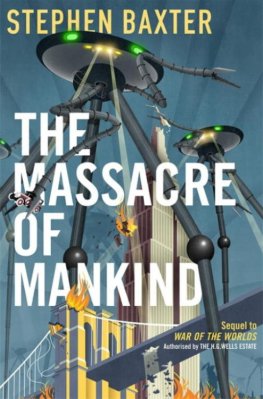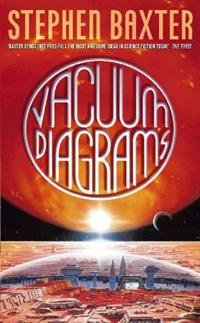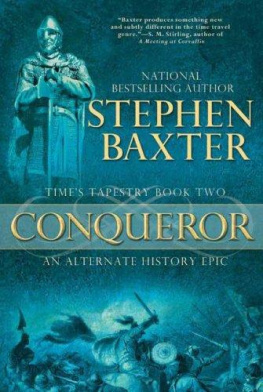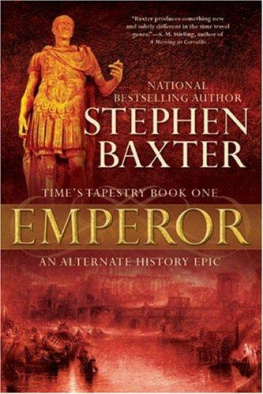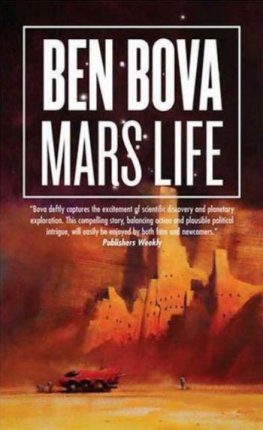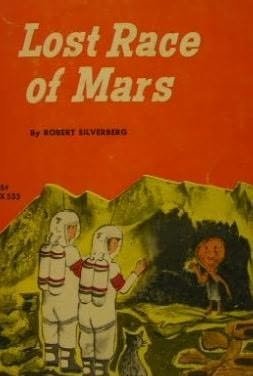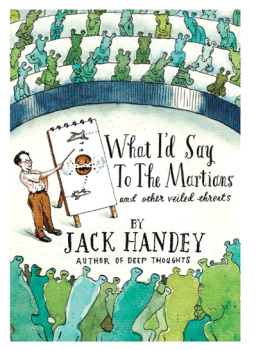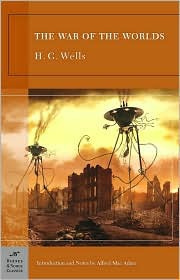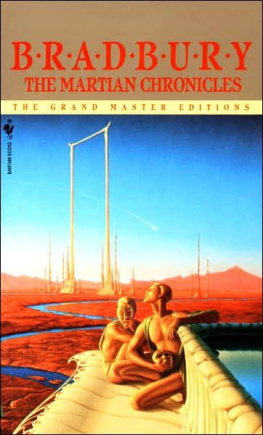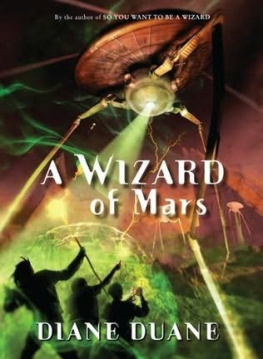Stephen Baxters
THE MASSACRE OF MANKIND
A sequel to
The War of the Worlds
by
H.G. Wells
To
H.G. WELLS
This Extending Of His Idea and
The H.G. Wells Society
If astronomy teaches anything, it teaches that man is but a detail in the evolution of the universe, and that resemblant though diverse details are inevitably to be expected in the host of orbs around him. He learns that, though he will probably never find his double anywhere, he is destined to find any number of cousins scattered through space.
Percival Lowell,
Mars, 1895.
Despite a return to war-mongering and greed, still it seemed to me that humanity was on the verge of a deep apprehension of its place in the cosmos. The intellectual world was alive with speculation and hope. But then the Martians came again.
Walter Jenkins,
Narratives of the Martian Wars, 1913 & 1928.
BOOK I
THE RETURN OF THE MARTIANS
To those of us who survived it, the First Martian War was a cataclysm. And yet, to minds far greater than our own and older even than the Martians, minds who regard our world from the cold outer reaches of space, that conflict must have seemed a trivial affair indeed, and unworthy.
Since the First War, and indeed before it, the nebular hypothesis has become familiar enough to the newspaper-reading public, and over time has been amply confirmed by the scientists. The sun is the father and mother of the solar system. From its mass periodically are expelled tremendous blasts of matter, belts of gas and dust and complex elements baked in that hot hearth, which coalesce across millions of years into globes: these are the planets with their retinue of moons, which, cooling, then recede slowly from the central fire. It follows that the further a world is from the sun, the older it must be that globe and its cargo of life and cooler. Thus the earth is older than hot, fecund Venus; and Mars, austere and chill, is in turn older than our temperate globe. The outer worlds, Saturn, Uranus and Neptune, are ancient indeed and locked in the stasis of time and cold. But Jupiter king of planets, more massive than the rest combined, and older than Mars as Mars is older than our world is, must be, host to the gravest intellects of all.
We know now that these minds have long watched us humanity, the Martians, even innocent Venus. What can they have thought of our War? The fragile sparks crossing the night, the flares of fire on the green skin of our planet, the splash of ink-black smoke the swarming and helpless populations They looked on all this as a silent god might regard his flawed creations, perhaps, their reflections disapproval profound.
And yet, claims Walter Jenkins, provides the context within which we, who once believed we were lords of creation, must live out our petty lives. Our petty lives and as the Martians inflicted when they made their second crossing to this earth our small deaths.
Walter was right. This mighty context was to shape everything about the Second War, and indeed the most important moment of my own life. On the other hand, I myself, like most people, stay sane by generally not thinking about it.
And speaking of grave scrutiny, as I commence this memoir of my own, I cannot help but acknowledge the long shadow cast by that tombstone of a volume which everyone knows as the Narrative, the history of the First War penned by Walter, my esteemed brother-in-law if he can still be termed such after I divorced Frank, his brother a work that, as Walters therapist Freud might say, has burned a particular perception of the First Martian War into the public subconscious with the intensity of a Heat-Ray. Let me warn the reader from the off that if its the grandeur of the cosmos that you want, all told in the lofty prose of a man who was once paid to scribble such stuff, then its another correspondent you should seek out. And indeed if you want the self-portrait of a soul undergoing psychic shock and disintegration, which in the end made Walters tome of more value to the bump-feeler than to the historian, go to him. On the other hand if its an honest, factual account of my own experience youre after a woman who survived the First unimaginable Martian War and had her life pulled to pieces in the Second then I humbly submit this, history as I saw it.
Although I admit it is an irony that my experience of the second conflict should begin, long before a Martian again set foot on this earth, with a complicated series of telephone calls from Walter himself, emanating from the hospital in Vienna where he was being treated at the time. I, who was patiently building a fresh life for myself in the New World, wanted nothing to do with it. But I have always had a sense of duty. I answered the summons.
A dotty-house, to Jupiter! From the beginning it was a tangled tale indeed.
My first inkling of the impending storm came in fact in New York, specifically at the Woolworth Building, when Major Eric Eden (retired) asked to meet me.
My young colleague Harry Kane insisted on accompanying me. Harry was of that breed of brash American journalists who are always suspicious of all things European he would have been even before the Schlieffen War, I think. I suppose Harry came as a kind of moral support, but with a morbid curiosity too about a Martian War that to him had been only a distant spectacle of his youth.
So we made our way. It was a brisk mid-March day in the year 1920. Manhattan had suffered what everybody hoped would prove to be the last snow storms of the year, although the main hazard on that particular morning turned out to be the slush piles alongside every sidewalk, ever ready to soak an unwary ankle. I remember that morning: the swarming, cheerfully ill-tempered traffic, the electric advertising hoardings that glowed in the greyness of the day the sheer innocent vigour of a young nation in those last hours and minutes before I was dragged back into the affairs of gloomy, wounded old England.
At last Harry and I pushed through the doors into the Woolworth. The air in the lobby, heated and scented, hit me like a slap in the face. In those days the Americans liked to be very warm indoors, and that was one transatlantic cultural shift I had yet to get used to. I pulled open my coat and loosened my headscarf, and we walked across a floor of polished Greek marble that was speckled with melted snow and grit from the street. The lobby was busy, every one of its transient, swarming inhabitants intent on his or her own destination. Harry, with his usual air of amused detachment an attractive trait in a man a few years younger than me, even if it doesnt sound it said to me over the noise of the excited, chattering crowd, I take it your Major Eden doesnt know the city so well.
You can say that without ever meeting him?
Sure I can. If you dont know Manhattan, where else do you set up a meeting but here? In London an American would meet you at St Pauls thats the one with the hole in the dome, right? And a British in New York well, here we are, in the tallest building in the world! He pointed. And there he is, by the way.
The man he indicated stood alone. He was slim, not tall, and wore a morning suit that looked expensive enough but dowdy compared to the peacock fashions around him. If this was Eden he looked younger than his thirty-eight years six years older than me.
And that must be Eden because
Hes the only one looking at the artwork.
Indeed, hands in pockets, oblivious to the crowds, the man was staring up at the ceiling, which (had I ever noticed this before?) was coated with mosaics that looked Roman, perhaps Byzantine. That was the Americans for you; in this new monument to a triumphant Mammon, they felt the need to reach back to their detached European past.

